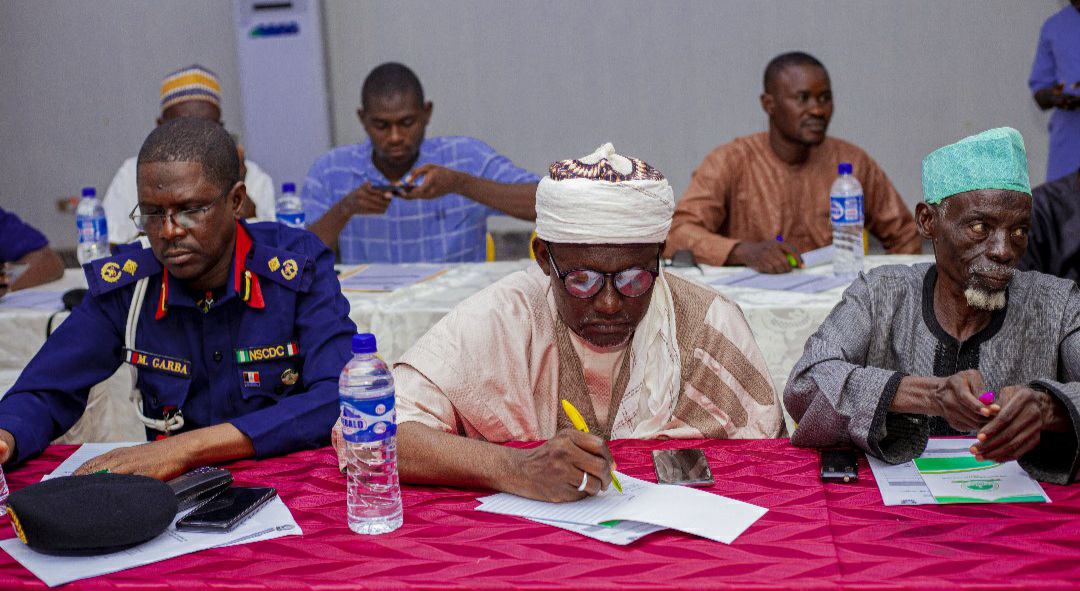BY CHIKA OKEKE, Abuja
The Civil Society Legislative Advocacy Centre (CISLAC)/Transparency International in Nigeria (TI-Nigeria) has blamed faulty recruitment process in the public and private sector on systemic infiltration of violent extremists’ activities.
This was even as the organisation disclosed that fast-eroding social values and poor orientation at family levels, and growing impact of illicit drug abuse and trafficking provided a breeding ground for terrorism, terrorism financing and violent extremism.
Executive Director of CISLAC/TI-Nigeria, Auwal Ibrahim Musa stated this at the end of a 2-day sensitisation workshop for community networks and security agencies on early detection, reporting, prevention and proactive response to violent extremism as well as the utilisation of Early Warning/Early Response Systems (EWER).
It was organised by CISLAC/TI-Nigeria and jointly financed by Inter-Governmental Action Group against Money Laundering in West Africa (GIABA) and Economic Community of West African States (ECOWAS).
Musa noted that community inaction against suspected threat signals enabled infiltration of terrorists and violent extremists’ activities.
He stated that violent extremism is driven by social exclusion, over-politisation of policies, marginalisation, human right violation, climate change impact, environmental degradation and social inequality.
The workshop held between 15 to 16 August in Bauchi State, was attended by over about 50 participants from security agencies, traditional institutions, civil society, religious institutions, women groups, persons with disabilities, community-based organisations and the media.
Musa pointed out that the emerging socio-economic and technological threats enabled by globalisation, combined with imported ideology contributed to the recruitment and radicalisation into terrorism and violent extremism.
He said: "Efficient Early Response system is hampered by information overload, delayed verification and validation, poor coordination, resource constraints, bureaucracy, lack of trust and credibility, inadequate planning, socio-political barriers and technical challenges.
"Virtual presence of violent extremism reflects in unguarded speeches or essays inciting ethno-religious violence; rallying support for violence with messages in praise of terrorists and unsolicited advice on how to obtain or make weapons."
The executive director called for enhanced partnership between the government and stakeholders to address the remote and immediate causes of violent extremism.
He suggested adequate deployment of manpower and early detection technology to facilitate efficient and timely response to threat signals.
Participants at the 2-day sensitisation workshop on Combating Violent Extremism in Bauchi recently.
This was contained in a communique signed by Auwal Ibrahim Musa (Rafsanjani); representative of Bauchi State Civil Society groups, Comfort Attah and DC of Nigeria Security and Civil Defence Corps (NSCDC) Adamawa state, Garba Ishola.
To this end, the participants recommended synergy among community and response institutions so as to strengthen intelligence gathering on threat signals and facilitate coordinated response.
The participants sought for adequate investment in Research and Development (R&D) into early warning system with enhanced capacity in monitoring and evaluation to understand emerging threat signals and devise proactive response.
It further suggested: "Prevention of violent-extremism through the promotion of rule of law and human rights; intensified fight against corruption; participatory decision-making; respected civic space at all levels and provision of effective socio-economic alternatives to violence for groups at risk.
"Strengthening the capacity of Local Governments (LGs) for efficient service delivery and security through thorough monitoring and supervision of the implementation of LG autonomy by civil society for maximum accountability.
"Timely reporting of suspicious activities of violent extremists through the established community security architecture, Nigeria Police Complaint Response Unit (NPF-CRU), intelligence and investigation unit of the NSCDC, established EWER situation room and dedicated counter terrorism reporting website."


Comments
Post a Comment